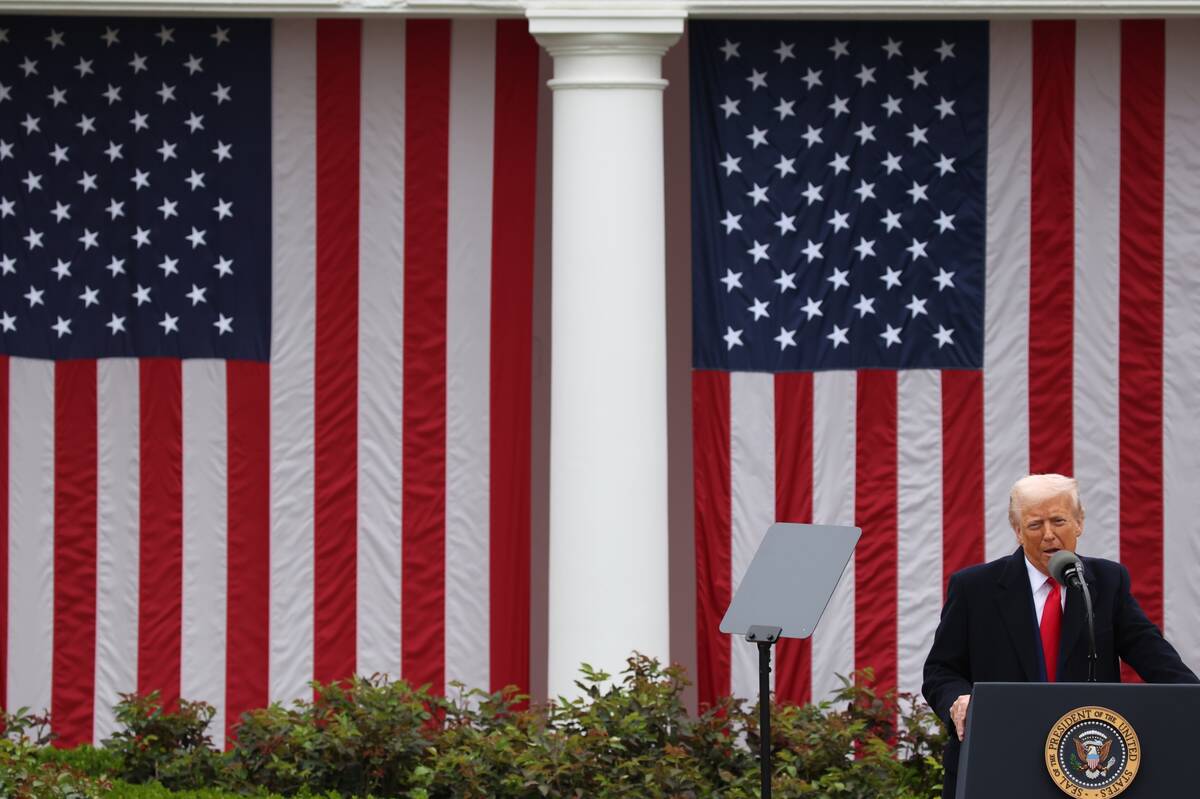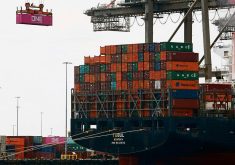Ottawa | Reuters — A proposed U.S.-Canada trade deal could still be weeks away, Ottawa’s chief negotiator said on Friday, a day after U.S. President Donald Trump imposed higher tariffs on imports from Canada.
Trump, who had set an August 1 deadline for an agreement, signed an executive order increasing tariffs on Canadian goods to 35 per cent from 25 per cent on all products not covered by the Canada-U.S.-Mexico trade agreement (CUSMA).
Most agricultural goods are exempt from tariffs under CUSMA.
Read Also

U.S. grains: Chicago grain prices fall amid profit-taking and dollar rebound
Chicago | Reuters – Chicago corn, soybean and wheat futures fell on Friday, pressured by profit-taking and a rebound in…
Prime Minister Mark Carney insisted on the talks to reset bilateral relations, saying Trump’s tariffs have upended decades-old trading and security ties. The negotiations, though, have so far produced little.
Although over 90 per cent of Canadian exports enter the United States without duties, the tariffs apply to crucial sectors such as steel, aluminum and automobiles.
Canada will only accept a good deal: LeBlanc
Federal cabinet minister Dominic LeBlanc, in charge of U.S. trade relations, said Canada had always made clear it would only accept a good deal.
“At the end of business yesterday that agreement was not yet in sight … there remain sectors the Americans are targeting which are essential for the Canadian economy,” he told public broadcaster Radio-Canada.
“Over the coming weeks we will … continue talks with the Americans in an attempt to find a deal that would put us in a better position.”
Separately, LeBlanc told reporters in Washington that he would speak to U.S. Commerce Secretary Howard Lutnick next week and hoped to meet him in August.
“The doors aren’t closed, the doors are open, the conversations are ongoing,” he said.
The White House cited what it said was Canada’s failure to stop fentanyl smuggling and address U.S. concerns about trade barriers.
Washington is also unhappy about Canada’s refusal to drop its own countermeasures, which were first imposed by former Prime Minister Justin Trudeau. He resigned in March to be replaced by Carney, who won an April election promising to stand up to Trump.
In June, Carney had threatened to ramp up counter tariffs in July unless there was progress on the deal. A statement he issued on Friday did not mention retaliation.
Brian Clow, who was in charge of U.S. relations inside Trudeau’s office for several years, noted Trump had announced deals with nations that declined to impose counter tariffs.
“Unfortunately, Canada stands on its own right now, along with China, because many other countries … refused to stand up to this President,” he said by phone. “So I’m not sure that further retaliation is the way to go.”
Divided approaches
Carney’s talk about standing up to Trump cannot hide the divisions between those advocating for a hard line and those who worry about the potential economic damage.
Goldy Hyder, president of the Business Council of Canada lobby group, said Canada was struggling at the talks and urged a new approach.
“As someone said to me, Canada is playing chess, but there’s nobody playing chess with it at the other end,” he said.
“We’ve got to make sure that we are thinking through: ‘What have we been doing and what do we need to do?’,” he told CBC News. “We’ve got to move with greater urgency, because our own economy is very fragile.”
—Updated Aug. 1 at 4:07 pm















